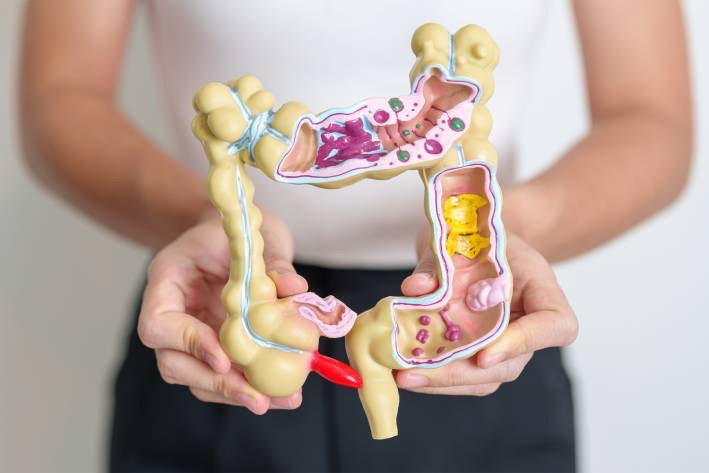Top 10 Smart Driving System Brands and Companies
Understanding Colitis Treatment: Approaches and Options
Colitis, an inflammation of the colon, can lead to a range of symptoms from mild discomfort to severe complications. Understanding the treatment options available for colitis is crucial for managing the condition effectively. This article provides an overview of the common treatment strategies, including medications, lifestyle changes, surgical options, and alternative therapies.
Colitis, an inflammation of the colon, can lead to a range of symptoms from mild discomfort to severe complications. Understanding the treatment options available for colitis is crucial for managing the condition effectively. This article provides an overview of the common treatment strategies, including medications, lifestyle changes, surgical options, and alternative therapies.

Medical Treatments for Colitis
The first line of treatment for colitis typically involves medications aimed at reducing inflammation, controlling symptoms, and inducing remission.
1. Aminosalicylates (5-ASA)
Aminosalicylates are anti-inflammatory drugs commonly prescribed for mild to moderate cases of colitis. These drugs work by reducing inflammation in the colon’s lining. They are effective for treating ulcerative colitis and are typically the first medication tried for new diagnoses.
• Examples: Mesalamine, Sulfasalazine
• Benefits: Generally well-tolerated and effective for mild symptoms.
• Side effects: Rare but may include nausea or headaches.
2. Corticosteroids
For more severe inflammation, corticosteroids can be used to reduce inflammation rapidly. These powerful anti-inflammatory drugs are effective but usually only recommended for short-term use due to potential side effects with prolonged use.
• Examples: Prednisone, Budesonide
• Benefits: Quickly reduces inflammation during flare-ups.
• Side effects: Long-term use can lead to weight gain, osteoporosis, and increased risk of infection.
3. Immunomodulators
Immunomodulators help regulate or suppress the immune system’s activity, making them useful for patients who don’t respond well to other treatments. They are often used for maintenance therapy to prevent flare-ups.
• Examples: Azathioprine, Mercaptopurine
• Benefits: Reduces reliance on steroids and can maintain remission.
• Side effects: Possible liver damage or increased risk of infections.
4. Biologic Therapies
Biologics are newer treatments that target specific proteins involved in the inflammatory process. These are often used for moderate to severe colitis or cases that don’t respond to traditional medications.
• Examples: Infliximab (Remicade), Adalimumab (Humira)
• Benefits: Effective for those with moderate to severe disease.
• Side effects: Risk of infections, infusion reactions.
5. Antibiotics
If a bacterial infection is suspected, antibiotics may be prescribed to clear the infection and prevent further complications.
• Examples: Metronidazole, Ciprofloxacin
• Benefits: Clears bacterial infections that could worsen colitis symptoms.
• Side effects: Common side effects include gastrointestinal disturbances like nausea or diarrhea.
Diet and Lifestyle Changes for Colitis
Diet and lifestyle adjustments are essential for managing colitis and preventing flare-ups. While each person’s triggers may differ, certain general recommendations can help ease symptoms and maintain remission.
1. Avoid Trigger Foods
Certain foods can irritate the colon and exacerbate symptoms. Common triggers include dairy, high-fiber foods, spicy foods, and caffeine. Identifying and avoiding these foods can be key to reducing flare-ups.
2. Eat Smaller, More Frequent Meals
Eating smaller, more frequent meals instead of large meals can make digestion easier and reduce strain on the digestive system.
3. Stay Hydrated
During a flare-up, dehydration is a concern due to fluid loss from diarrhea. Drinking plenty of fluids is vital to maintain hydration and overall health.
4. Manage Stress
Stress is a known trigger for colitis flare-ups. Incorporating stress management techniques such as yoga, meditation, or mindfulness can help reduce the frequency and severity of symptoms.
5. Exercise Regularly
Physical activity is beneficial for overall health and can help reduce stress and inflammation. Exercise also helps maintain healthy bowel function.
Surgical Options for Colitis
For patients with severe colitis that does not respond to medication, surgery may be considered. Surgical options aim to remove damaged parts of the colon or relieve symptoms.
1. Colectomy
Colectomy is the surgical removal of part or all of the colon. If the entire colon is removed, an ileostomy may be required, where waste is diverted to a bag outside the body.
2. Strictureplasty
This procedure involves widening narrowed parts of the colon to improve bowel movement and relieve symptoms associated with strictures (narrowing due to scarring).
3. Resection
In some cases, only the diseased portion of the colon is removed, preserving as much healthy tissue as possible.
Alternative and Complementary Therapies
Some individuals with colitis may seek relief through alternative therapies, although these should be used in conjunction with traditional medical treatments.
1. Probiotics
Probiotics are beneficial bacteria that can help restore the natural balance of the gut microbiome. Some studies suggest they may help alleviate symptoms and improve overall gut health.
2. Herbal Supplements
Certain herbs, such as turmeric and aloe vera, are known for their anti-inflammatory properties and may help reduce symptoms of colitis. However, it’s essential to consult with a healthcare provider before starting any herbal supplement.
3. Acupuncture
Acupuncture has been explored as a complementary treatment to help reduce inflammation and manage pain associated with colitis. Some studies suggest that it may improve symptoms, although more research is needed.
Conclusion
Treating colitis requires a comprehensive approach, combining medication, dietary changes, lifestyle adjustments, and sometimes surgery. By working closely with healthcare providers, individuals with colitis can develop a treatment plan tailored to their specific needs, helping to control symptoms and improve their quality of life.











